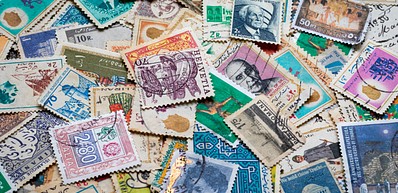
-
![information signage]() Provided by: Thea/Unsplash
Provided by: Thea/Unsplash

Our travel guides are free to read and explore online. If you want to get your own copy, the full travel guide for this destination is available to you offline* to bring along anywhere or print for your trip.
*this will be downloaded as a PDF.Price
€4,95
Tourism in Bhutan
The guide was updated:Bhutan follows a 'High Value, Low Impact' tourism policy in order to preserve the country's natural and cultural uniqueness. As such, visitors are required to pay a Minimum Daily Package Rate to a local tour operator. It typically covers accommodation, meals, a licensed Bhutanese tour guide, all internal transportation, camping equipment and haulage for trekking tours, as well as cultural and historical site entry fees. Visit the Kingdom of Bhutan's official website for information on current rates and conditions.
All visitors to Bhutan (besides Indian, Bangladeshi and Maldivian passport holders) must organise their trip through a certified tour operator, which handles all arrangements for visiting groups.
Useful Information
Digital Travel Guide Download
Our travel guides are free to read and explore online. If you want to get your own copy, the full travel guide for this destination is available to you offline* to bring along anywhere or print for your trip.
*this will be downloaded as a PDF.Price
€4,95

Bhutan follows a 'High Value, Low Impact' tourism policy in order to preserve the country's natural and cultural uniqueness. As such, visitors are required to pay a Minimum Daily Package Rate to a local tour operator. It typically covers accommodation, meals, a licensed Bhutanese tour guide, all internal transportation, camping equipment and haulage for trekking tours, as well as cultural and historical site entry fees. Visit the Kingdom of Bhutan's official website for information on current rates and conditions.
All visitors to Bhutan (besides Indian, Bangladeshi and Maldivian passport holders) must organise their trip through a certified tour operator, which handles all arrangements for visiting groups.
Read more

Passport/Visa
Citizens of India, Bangladesh, and the Maldives do not need a visa to visit Bhutan. All other citizens will need a permit to enter the country, which is only obtainable through certified tour operators in Bhutan and their international partners. These take care of all visa arrangements and organise all of your trip’s details, including accommodation, transportation, and providing a personal guide for your group.
Upon entering the country, visitors receive either an Entry Permit (valid only for Thimphu and Paro) or a Restricted-Area Permit (valid for the whole country). Those wishing to visit Buddhist temples will also need a Temple Permit from the Ministry of Culture. All permits should be handled by your tour operator.
Note that some unregistered tour operators have popped up, so be sure to visit the website below to make sure you choose a certified operator.
Read more

Paro International Airport (PBH)
Paro Airport (PBH) is Bhutan's only international airport, located 6 kilometres from the town of Paro and about 65 kilometres from Thimphu. Taxi services are available, but most international visitors will be met by their guide and provided transport to their destination.
Read more

Best Time to Visit
The best time to visit Bhutan is during the spring (March to May) and autumn (September to November) seasons. During these periods, the weather is pleasant, and the skies are clear, making it ideal for trekking and sightseeing. Spring showcases the beautiful blooming rhododendrons, while autumn offers vibrant festivals like Thimphu Tshechu and stunning views of the Himalayas. These months also experience fewer showers of rain compared to the summer monsoon season and are warmer than the winter months.
Read more

Public Transport
There are no trains in Bhutan, so transport within the country is limited to road and air travel. There are taxis in Phuentsholing, Paro, Jakar and Thimphu (long-distance services are also available), but again, most travellers will have a private vehicle provided to take care of all transport needs.
Read more

Taxi
There are taxis in Phuentsholing, Paro, Jakar and Thimphu (long-distance services are also available), but most travellers will have a private vehicle provided to take care of all transport needs.
Read more

Pharmacy
You will find pharmacies in major towns and cities, including Thimphu, Paro, and Punakha. These pharmacies provide a range of medications and healthcare products. For more specific needs or prescription medications, it is recommended to bring a sufficient supply when travelling to Bhutan, as some medications may not be readily available.
Read more

Post
Located in central Thimphu, Bhutan's main post office is open from Monday to Saturday. Here, visitors can buy stamps and send postcards and parcels.
Read more

Telephone
Country code: +975
Read more

Electricity
In Bhutan, the power plugs and sockets are of type D, F and G. The standard voltage is 230 V – 240 V and the standard frequency is 50 Hz.
Read more


